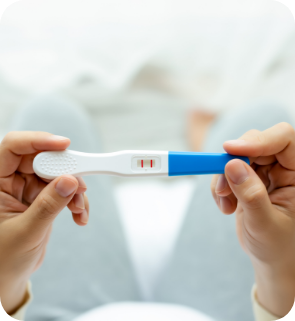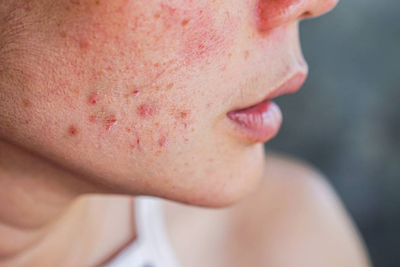
The Truth About PCOS And Fatigue
FATIGUE, TIREDNESS, AND EXHAUSTION ARE ALL COMMON SYMPTOMS OF PCOS.
When you talk to the women with the condition, symptoms like fatigue and and low energy levels are part of everyday life. Unfortunately for these women life goes on. You have a million things you need to get done every single day and it seems like nobody cares that you could sleep for 6 months straight like a hibernating bear.
Let’s be honest here, when you have your daily duties to get through and you’re so tired there’s a chance that every blink could turn into a nanny nap, it’s the worst feeling.
What’s even worse than constantly feeling tired is when you’re tired of constantly feeling tired. So, what’s the cause of fatigue in PCOS, and what can you do about it?
INSULIN RESISTANCE
Insulin resistance (IR) is a condition that up to 70% of women with PCOS have. IR causes the cells of your body to no longer behave towards insulin as they should. Insulin acts as the key to the cell doors, allowing nutrients from your bloodstream into the cells to power it so it may function properly.
In women with IR, the cell doors are essentially closed, this means the cells that need those nutrients and energy to function are now starving. These cells now send signals to your brain to reduce energy expenditure - making you feel tired.
Even if you’re eating a good amount of food, with IR the cells may not be getting the energy from your diet. This is why so many women with PCOS feel so lost as to why they’re constantly feeling so drained even though they’re eating a good amount of food each day, it just doesn’t make sense!
Insulin resistance negatively impacts your metabolism and is also associated with sleep issues, so combining the fact that your cells are now signalling to your brown to turn down your energy output with the fact that you’re tossing and turning all night, it’s a recipe to ensure your energy levels remain on empty.
HORMONAL IMBALANCES
PCOS can trigger a number of hormonal imbalances that can have a range of effects on your physical and emotional health. The hormone estrogen plays a crucial role in energy levels. Estrogen is primarily produced in the first phase of the menstrual cycle as your follicles start to mature for ovulation.
PCOS can cause irregular or missing menstrual cycles leading to low estrogen levels. Low estrogen will negatively impact your energy levels. Also, low estrogen is associated with anxiety, poor mood, difficulty concentrating, weight gain, and disrupted sleep.
SLEEP ISSUES
There’s few things better in life than waking up after a great night’s sleep, feeling completely rested and excited for the day. On the flip side, there’s very few things in life more dreaded than hearing your alarm go off in the morning feeling like you haven’t had a second of sleep throughout the night - it’s a horrible feeling. Poor sleep can literally affect every aspect of your physical and emotional well-being.
Poor sleep is known to cause mood issues, increased hunger, weight gain, poor concentration, irritability, moodiness, forgetful, and, you guessed it, reduce energy levels. You place a few bad nights sleep back to back and it’s a wonder not more women with PCOS aren’t serial killers.
LOW THYROID
If your thyroid gland doesn’t produce enough thyroid hormones the condition is known as hypothyroidism or an underactive thyroid. It’s estimated that 10% of the general population has hypothyroidism but, around 22% of women with PCOS have hypothyroidism, meaning there’s a definite connection between the two conditions.
The main symptoms of hypothyroidism include chronic tiredness, weight gain, sensitivity to the cold, depression, dry skin, dry hair, and muscle aches.
LOW NUTRIENT LEVELS
Women with PCOS can have a number of key nutrient deficiencies that can majorly impact their health without them having any idea of what’s going on. For example, vitamin B12 is a nutrient you need for good health. It's one of eight B vitamins that help the body convert the food you eat into glucose, which gives your body energy.Women with PCOS are often deficient in Vitamin B12, especially those who have been taking Metformin long-term.
Other key nutrients deficiencies in women with PCOS that may be having a negative impact are magnesium, zinc, and vitamin D.
HOW TO BOOST YOUR ENERGY LEVELS
1) Increase your Insulin sensitivity
- Eat a low to moderate carbohydrate diet with carbs being 20%-30% of your overall diet. Also, ensure the carbs you do eat are largely from low GI sources.
- Ensure you get in 3-5 days each week of regular exercise combining resistance, HIIT, and restorative workouts.
- Supplement with inositol NAC, cinnamon, and apple cider vinegar.
2) Regulate your menstrual cycle (hormonal balance)
- Increasing your insulin sensitivity should help tremendously in better balancing your hormones but, high androgen levels can also throw out your menstrual cycle. Be proactive in trying to manage your stress levels as stress can lead to adrenal androgen excess. Also, supplementing with zinc and saw palmetto can help to lower androgen levels.
3) Create a sleep routine
Your sleep wake cycle is controlled by hormones which are influenced by many things that our modern lifestyle put out. Things like increasing your exposure to daylight throughout the day and then ensuring your nights have as little light as possible are hugely beneficial, this means turning off lights, and staying off your technology devices like phones.
Other tips are to not consume caffeine after 2PM, try to go to sleep and wake up at the same times each day, and take a melatonin supplement.
4) Maximise thyroid health
Thyroid health can be improved by an overall health lifestyle that involves regular exercise, aim for 3-5 workouts per week, staying hydrated by drinking 3 litres of water a day, and eating a healthy diet full of eggs, fish, and fruits.
5) Boost your nutrient levels
Many of the nutrient deficiencies seen in women with PCOS can help via a good, healthy diet and being smart with your supplementation. Choose an all-round PCOS multivitamin like Balance, and you could look at Optimal Health for all your B vitamin needs.
Combining smart supplementation with a healthy diet is the most effective way to ensure your body is hitting its nutrient needs.

















Hello drew, since upon your advice of going to the lab to check things I might be missing out. I have seen significant change in my body courtesy the supplements I have been on, magnesium, Ovasitol, b6, b12, omega 3, folate, it has been an incredible journey. But sleep has been my problem I have not been able to conquer the sleep problem. Please help me is there anything am not doing right? Sleep is essential to our overall health, I think mine is declining cause of lack of sleep.
Leave a comment